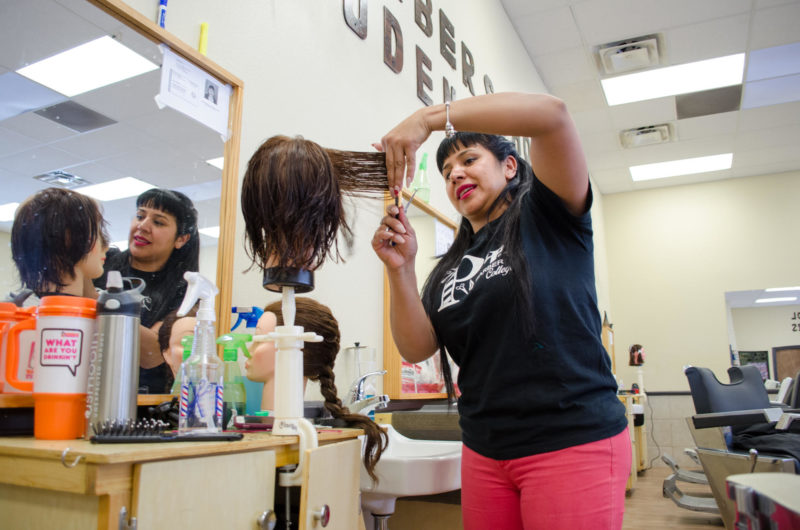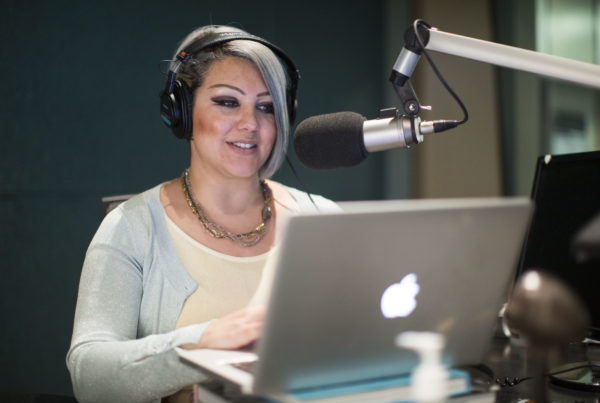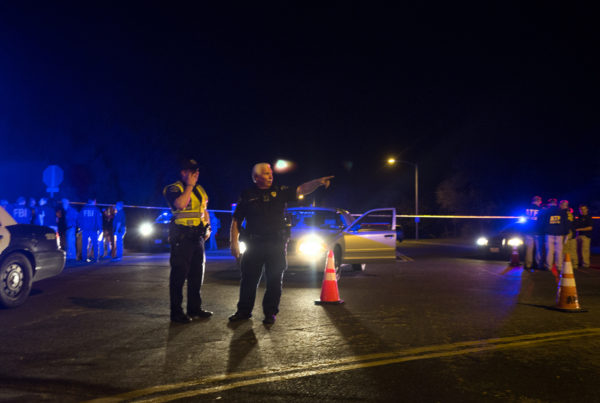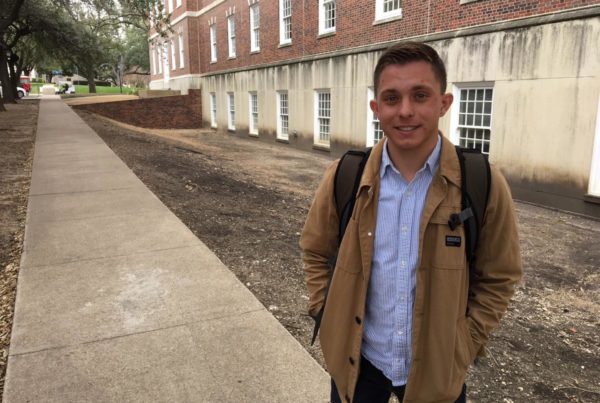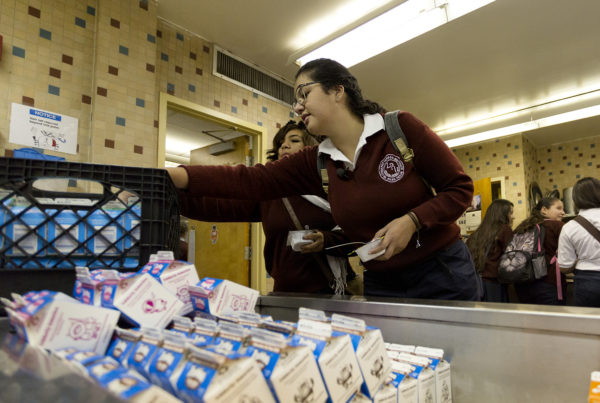According to The Texas Council on Family Violence, one in three Texans will experience domestic violence in their lifetimes. The organization says victims are often isolated and reluctant to report family violence to the police. But in far west Texas, there’s a new program in the works aimed at reaching potential victims in a somewhat unorthodox way: through their hairdressers.
On a Tuesday afternoon at the Pipo Academy of Hair Design at El Paso, several students practice what they’ve learned in class: blow drying, styling and cutting hair on men’s wigs.
“Right now I’m basic,” says student Laura Alonso. “I’m doing just the basic hair cutting, that way it can be even all around.”
Alonso is on the stage two of the nine-month barber program to get the barber license, but she is no stranger to the scissors. Alonso has been styling women’s hair for more than two decades, and she has plenty of regulars.
“Somehow after 10 years, a person becomes a friend,” she says. “Maybe not somebody you party with, but somebody who comes and tells you their problems.”
Over the years, she says sometimes clients hint at major issues at home.
“They don’t necessarily say ‘he hit me’ or ‘he is abusive’,” Alonso says. “But the stuff they say, you kind of figure maybe they are in an abusive relationship, and they don’t even know.”
Alonso and hairdressers like her are in a unique position to spot incidents of domestic violence. That’s the idea behind a program called Cut It Out, an initiative that El Paso District Attorney Jaime Esparza is bringing to El Paso. He says they will train stylists and cosmetology students on what to do when they suspect their clients are in abusive situations.
“They’ll know what to say, what resources are available, and they’ll be able to be one more hand in this community to help victims of domestic violence,” Esparza says
The DA says his office is applying for federal grant money to develop the program, but he intends to go forward with it either way.
“It’s just a matter of being committed, and scheduling it, and getting it done,” he says. “And I think we can do it.”
Esparza plans to send a team to give presentations at El Paso’s 200 salons and six cosmetology schools.
Organizers say the Cut It Out program works because many clients treat hairstylists a little like therapists.
“People often open up to their salon professionals and tell them things that they would never tell to other people because they have that close relationship and they don’t worry about other people hearing about it,” says Rachel Molepske, director of leadership operations and charitable programs at the Professional Beauty Association.
Her program oversees the nationwide Cut It Out domestic violence training program for stylists. During the training, stylists learn the three Rs: recognize the signs of abuse, learn to respond appropriately and refer clients to resources.
Melopske says they also learn what not to do.
“We don’t want you to get involved, we don’t want you to try to save them,” she says. “You never want to say ‘I know how you feel’ or question their decisions.”
Hairdresser Laura Alonso says she has had little luck in the past speaking to clients she suspects are in abusive situations.
“A lot of the times they are not open to what actually happens,” Alonso says. “So maybe if we are trained or helped to talk to those people, maybe we can help.”
The El Paso DA’s Office hopes to launch the program by the end of the year.
Written by Cesar Lopez-Linares.


